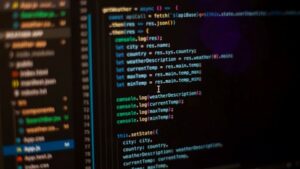In the ever-evolving world of healthcare, medical coding has emerged as a promising career path. It’s a vital cog in the medical billing process, translating patient records into standardised codes for insurance purposes. But what if you’re just starting out? This article explores the realm of entry-level remote medical coding jobs.
As the pandemic has reshaped the work landscape, remote jobs have become more prevalent and sought-after. For those seeking a stable career without the confines of an office, remote medical coding offers a golden opportunity. Let’s delve into what these roles entail, how you can break into the industry, and what potential career paths might look like. Stay tuned as we unravel the world of entry-level remote medical coding jobs.
Entry Level Remote Medical Coding Jobs
The Role of a Medical Coder
 Medical coders play a fundamental role in the healthcare sector. They convert patient health information into standardised codes, which healthcare facilities use for reimbursement purposes, tracking patient outcomes, and medical research. These professionals hold an indispensable position in maintaining the financial and medical health of healthcare institutions.
Medical coders play a fundamental role in the healthcare sector. They convert patient health information into standardised codes, which healthcare facilities use for reimbursement purposes, tracking patient outcomes, and medical research. These professionals hold an indispensable position in maintaining the financial and medical health of healthcare institutions.
Entry-level remote medical coding jobs necessitate these core responsibilities, albeit from a remote work setup. Freshers commence their journey as apprentice coders, gaining hands-on real-world experience on various coding systems such as ICD (International Classification of Diseases) and CPT (Current Procedural Terminology). Over time, they can advance to more specialised roles, exemplifying the dynamic career growth opportunities in this field.
Why Remote Jobs Are on the Rise
Remote work setups represent an ever-growing trend in the job market, a trend that saw immense acceleration due to the COVID-19 pandemic. In particular, remote medical coding jobs demonstrate notable growth. Contributing factors include flexibility in working hours, elimination of commute stress, and greater work-life balance.
Qualifications Needed for Entry Level Positions
Embarking on a career in entry-level remote medical coding necessitates specific qualifications. They encompass both educational backgrounds and relevant certifications vital for this profession. Acquiring these qualifications paves the way for aspiring medical coders to enter the field, ensuring they’re equipped with the expertise needed to navigate coding systems and fundamentals proficiently.
Educational Requirements
A high school diploma or equivalent stands as the minimum educational requirement for aspiring medical coders to obtain entry-level positions. However, recruiters often prefer candidates who hold an associate’s or bachelor’s degree in fields such as Health Information Management or Medical Billing and Coding. Various acclaimed universities and community colleges offer these degree programs, laying a solid foundation in understanding medical terminologies, anatomy, physiology, and other related medical disciplines.
Moreover, some courses also delve into the fundamentals of healthcare law and ethics, administrative duties, medical software among others, granting students comprehensive insights into the healthcare industry. These degree programs, coupled with an introduction to coding systems like International Classification of Diseases (ICD) and Current Procedural Terminology (CPT), equip aspiring medical coders with extensive knowledge, better positioning them for the competitive job market.
Preparing Your Application
In the pursuit of entry-level remote medical coding jobs, an engaging and well-put-together application holds immense potential. This includes both, an optimised resume and a standout cover letter.
Crafting a Relevant Resume
 A comprehensive resume typically serves as the first point of contact between a candidate and a prospective employer in the remote medical coding domain. As such, it’s essential to meticulously craft a resume that highlights pertinent skills, educational qualifications, and certifications.
A comprehensive resume typically serves as the first point of contact between a candidate and a prospective employer in the remote medical coding domain. As such, it’s essential to meticulously craft a resume that highlights pertinent skills, educational qualifications, and certifications.
For instance, a resume emphasising certified coding specialist status from the American Health Information Management Association (AHIMA) or the AAPC can make a huge difference. Candidates with experience volunteering in healthcare settings or those with exposure to health informatics databases and medical billing systems hold a distinct advantage—this experience ought to be highlighted in the resume.
Moreover, proficiency in the International Classification of Diseases (ICD), or the Healthcare Common Procedure Coding System (HCPCS) is highly appreciated. In addition, applicants may also benefit from stating a demonstrated aptitude for attention to detail and the ability to work independently, given the remote nature of jobs in question.